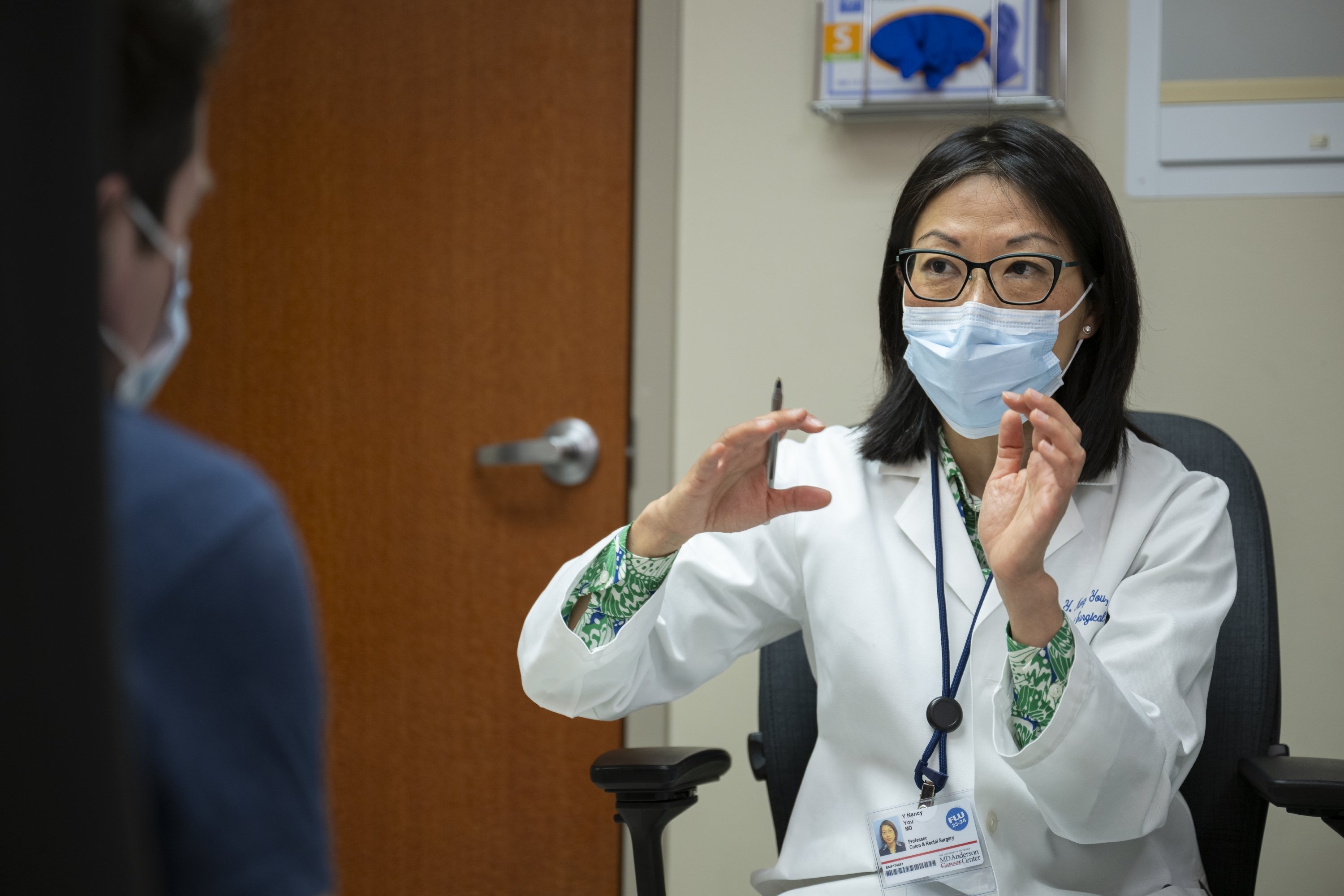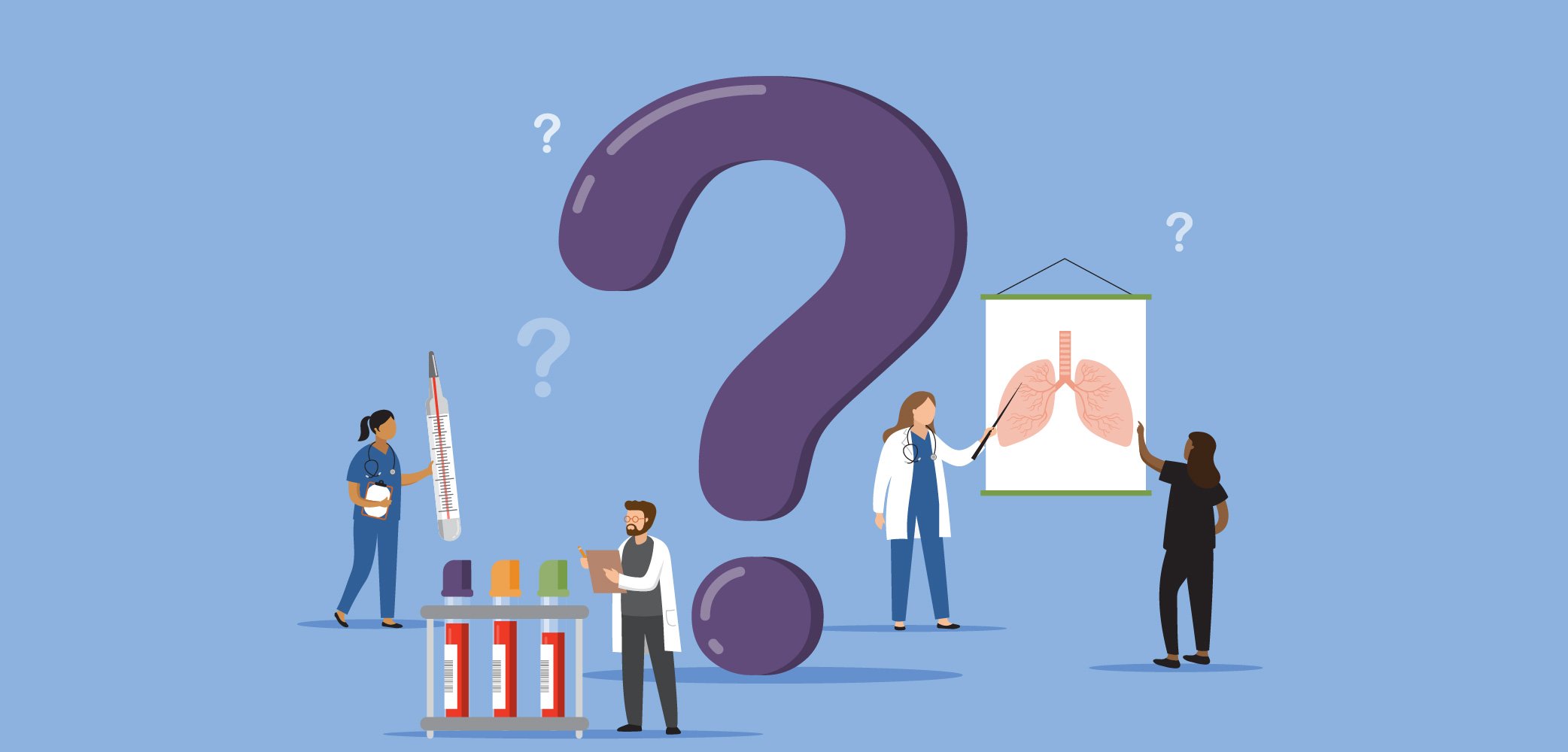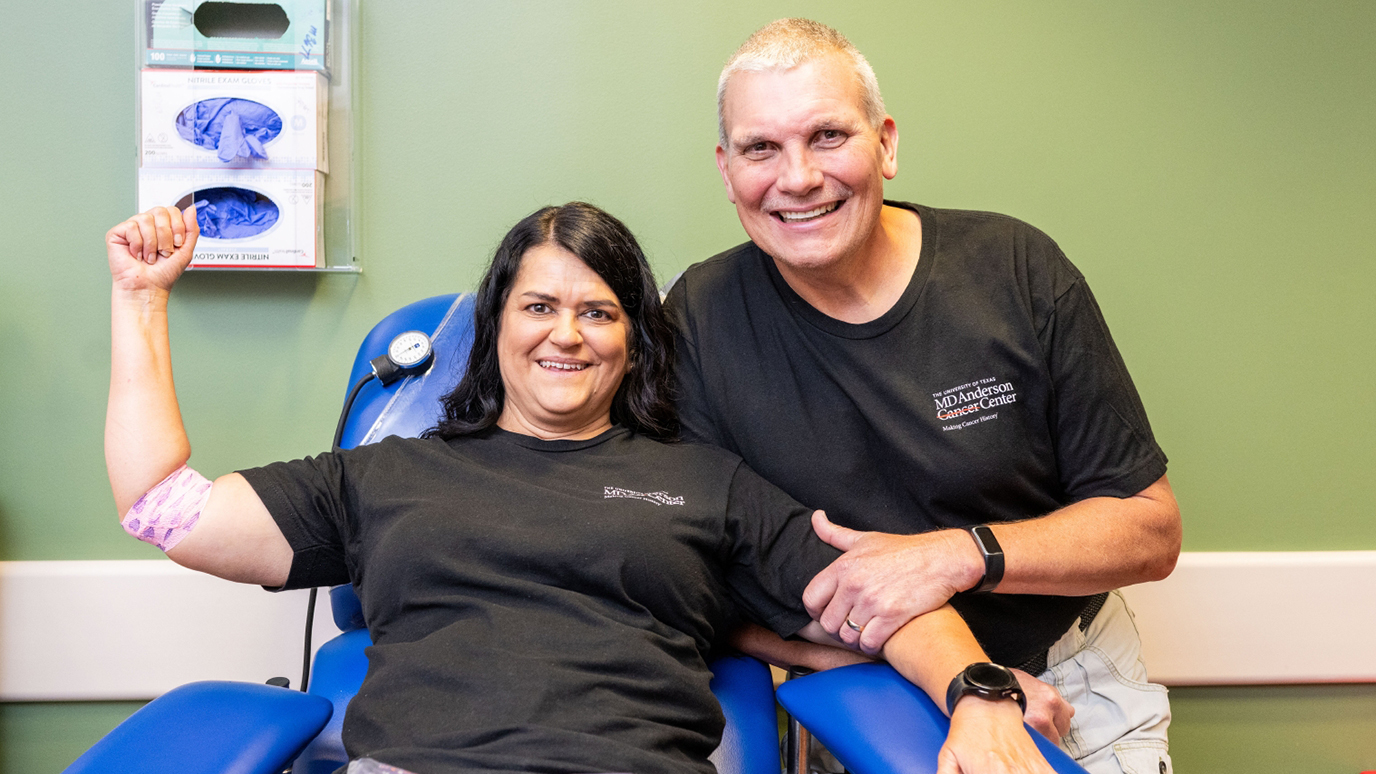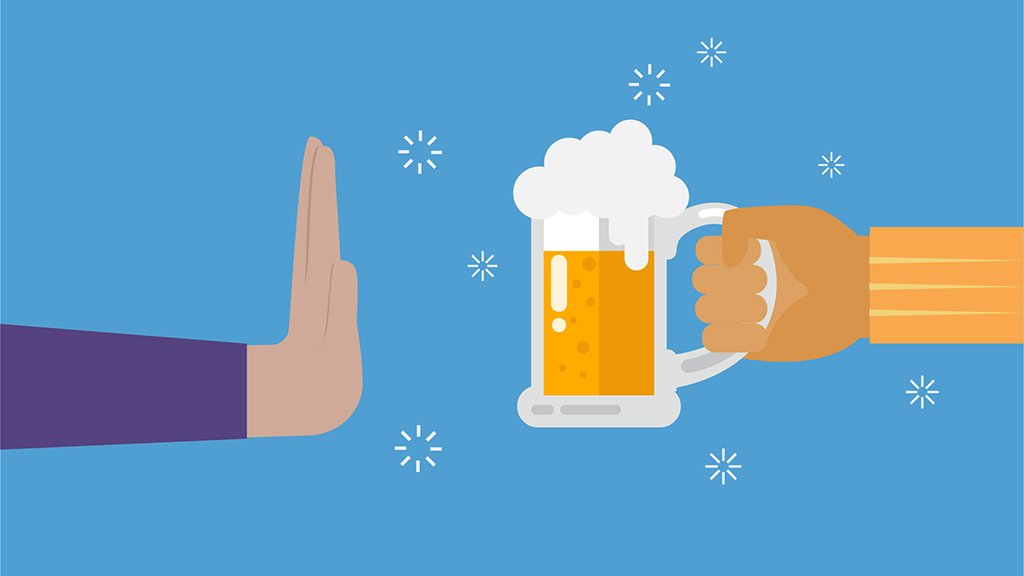- Diseases
- Acoustic Neuroma (14)
- Adrenal Gland Tumor (24)
- Anal Cancer (68)
- Anemia (2)
- Appendix Cancer (16)
- Bile Duct Cancer (26)
- Bladder Cancer (72)
- Brain Metastases (28)
- Brain Tumor (230)
- Breast Cancer (720)
- Breast Implant-Associated Anaplastic Large Cell Lymphoma (2)
- Cancer of Unknown Primary (4)
- Carcinoid Tumor (8)
- Cervical Cancer (158)
- Colon Cancer (166)
- Colorectal Cancer (114)
- Endocrine Tumor (4)
- Esophageal Cancer (44)
- Eye Cancer (36)
- Fallopian Tube Cancer (8)
- Germ Cell Tumor (4)
- Gestational Trophoblastic Disease (2)
- Head and Neck Cancer (10)
- Kidney Cancer (128)
- Leukemia (348)
- Liver Cancer (50)
- Lung Cancer (288)
- Lymphoma (284)
- Mesothelioma (14)
- Metastasis (30)
- Multiple Myeloma (100)
- Myelodysplastic Syndrome (60)
- Myeloproliferative Neoplasm (4)
- Neuroendocrine Tumors (16)
- Oral Cancer (102)
- Ovarian Cancer (174)
- Pancreatic Cancer (164)
- Parathyroid Disease (2)
- Penile Cancer (14)
- Pituitary Tumor (6)
- Prostate Cancer (146)
- Rectal Cancer (58)
- Renal Medullary Carcinoma (6)
- Salivary Gland Cancer (14)
- Sarcoma (238)
- Skin Cancer (296)
- Skull Base Tumors (56)
- Spinal Tumor (12)
- Stomach Cancer (64)
- Testicular Cancer (28)
- Throat Cancer (92)
- Thymoma (6)
- Thyroid Cancer (96)
- Tonsil Cancer (30)
- Uterine Cancer (80)
- Vaginal Cancer (16)
- Vulvar Cancer (20)
- Cancer Topic
- Adolescent and Young Adult Cancer Issues (20)
- Advance Care Planning (10)
- Biostatistics (2)
- Blood Donation (18)
- Bone Health (8)
- COVID-19 (362)
- Cancer Recurrence (120)
- Childhood Cancer Issues (120)
- Clinical Trials (636)
- Complementary Integrative Medicine (24)
- Cytogenetics (2)
- DNA Methylation (4)
- Diagnosis (232)
- Epigenetics (6)
- Fertility (62)
- Follow-up Guidelines (2)
- Health Disparities (14)
- Hereditary Cancer Syndromes (126)
- Immunology (18)
- Li-Fraumeni Syndrome (8)
- Mental Health (118)
- Molecular Diagnostics (8)
- Pain Management (62)
- Palliative Care (8)
- Pathology (10)
- Physical Therapy (18)
- Pregnancy (18)
- Prevention (916)
- Research (398)
- Second Opinion (74)
- Sexuality (16)
- Side Effects (608)
- Sleep Disorders (10)
- Stem Cell Transplantation Cellular Therapy (216)
- Support (402)
- Survivorship (322)
- Symptoms (184)
- Treatment (1790)
Colon cancer caregiver: We have hope
3 minute read | Published January 28, 2014
Medically Reviewed | Last reviewed by an MD Anderson Cancer Center medical professional on January 28, 2014
I'll never forget the phone call I received in Dec. 2012. I rushed to my parents' house, where my mom met me outside. I asked her, "Is it cancer?" She nodded her head as I hurried into the house and climbed into bed with my dad.
Dad had lost a lot of weight and felt sick for several weeks. A CT scan showed a malignancy that caused obstruction in his colon. He was diagnosed with stage IV colon cancer with liver metastases.
Through tears, my parents, my brothers and I discussed that we were not going to give up, no matter what. Dad had too many things he wanted to do. He wanted to walk me down the aisle at my wedding. He wanted to meet his future grandkids. He wanted to grow old with my mom.
"We're going to war with cancer," he said.
I took on this attitude, too. My dad is my best friend. Accepting that I wouldn't have him in my life just wasn't an option for me.
My dad's colon cancer treatment
Just two days after his colon cancer diagnosis, Dad had surgery at a hospital in our hometown in South Carolina. But he would need another surgery to remove the 8 tumors from his liver. Despite our local oncologist's best efforts, not one surgeon in the area was willing to perform the operation. But Dad refused to give up.
We traveled to MD Anderson in Houston, where dad's first appointment was with Michael Overman, M.D., associate professor of Gastrointestinal Medical Oncology, and Thomas Aloia, M.D., associate professor of Surgical Oncology.
The doctors gave us hope, but we knew it wouldn't be easy. Dad's treatment plan called for chemotherapy, followed by a liver resection, a surgery to remove part of the liver. Then, doctors would perform a portal vein embolization, a procedure that helps the liver grow back. If Dad's liver remained healthy through it all, then the doctors would perform a second liver resection to remove the rest of the cancer.
A team effort against cancer
For a year my family members took turns traveling to MD Anderson with my dad. Then, on New Year's Eve 2013, Dad underwent a successful stage II right liver resection. The surgery lasted nine hours.
On Jan. 13, I was finally able to escort my father home to South Carolina. It was like a dream come true when our plane landed. Pathology reports could not have been better, and the doctors were pleased with the surgery outcome.
Traveling to MD Anderson with my dad never felt like an obligation. It was something I wanted to do. Helping him ultimately helped me. I was there with him during the lowest lows and the highest highs. It was overwhelming at first, but, like my dad, I had my own support system in our family and friends. It was definitely a team effort.
Now this team is celebrating Dad's wonderful results, but we learned many things from his battle. We learned that cancer is a roller coaster and we learned to never give up. Most importantly, we learned to always have hope.
Related Cancerwise Stories

We learned that cancer is a roller coaster and we learned to never give up.
Stephanie Schmidt
Caregiver





